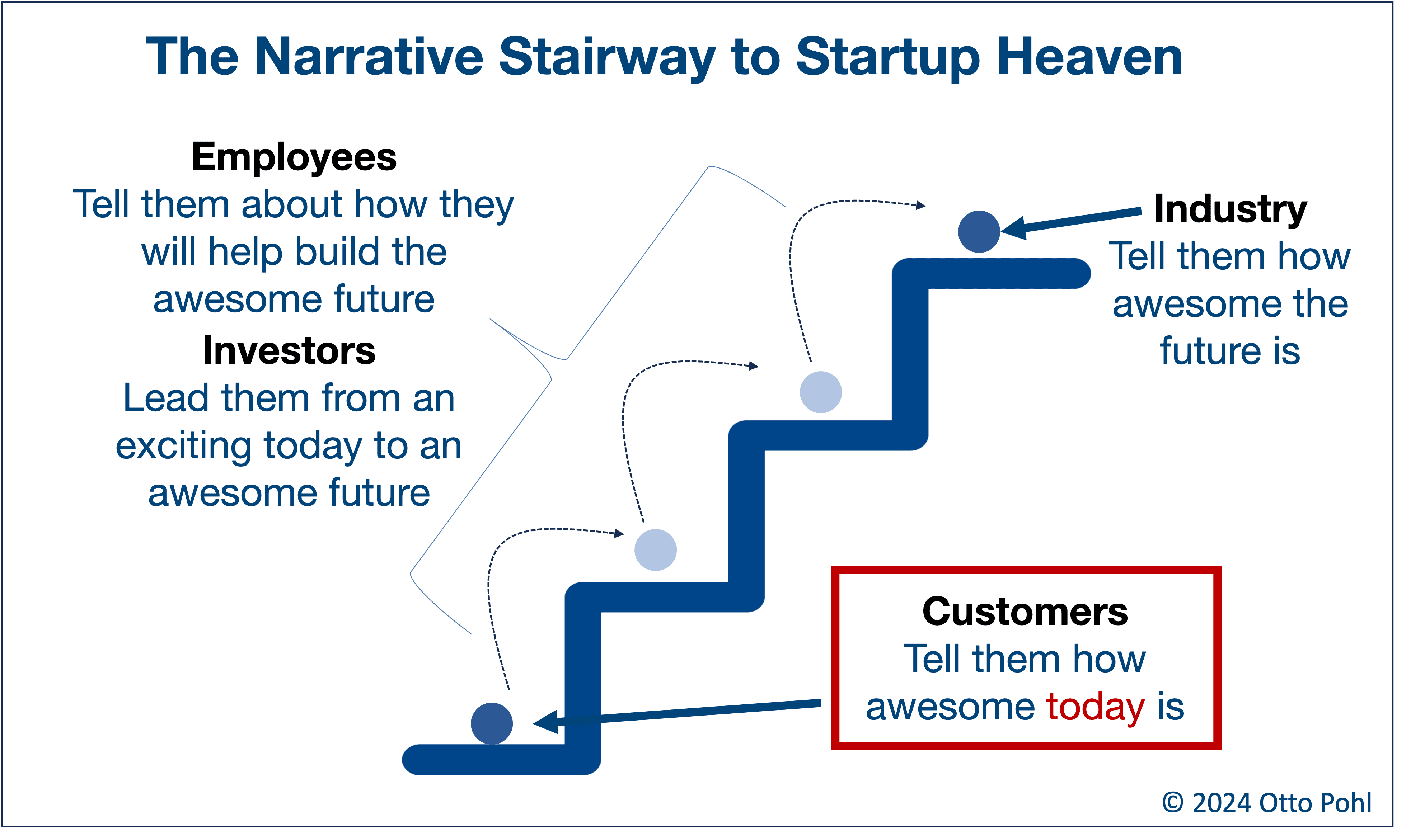Foundations
The Revolution Will Not Be Televised
Founders, rightly, want to change the world. But the status quo is a powerful thing, and it’s not simply going to crumble because you pull out the trumpets. You need to lead the status quo like a thirsty horse, step by step, to the water of your brilliance. Here's how.
Otto Pohl
Oct 1, 2024
Share this post
I was recently researching a early-stage startup website. It was devoid of detail but featured a breathless headline that the company was “revolutionizing” pharma development.
Founders, rightly, want to change the world. But the status quo is a powerful thing, and it’s not simply going to crumble because you pull out the trumpets. You need to lead the status quo like a thirsty horse, step by step, to the water of your brilliance.
To achieve that, you’ll need a careful strategy of market rollout and a thoughtful product roadmap. And you’ll also need narratives carefully tailored to each phase of the company’s growth.
A thoughtful conversation about communications is a conversation about strategy. And I can tell we need to have that conversation when I see founders resorting to empty puffery like “game-changer,” “disruption,” and, that old tech-industry stalwart, “revolution.”
What makes this more complicated is that there are multiple stakeholders for your startup narrative, and aspects of the “revolution” story are actually appropriate for most of them. There are typically 4 core audiences:
Investors
Employees
Industry
Customers / Partners
The last one is where founders get tripped up, and here’s why: In the rush of excitement about the global importance of the company’s innovations, which the first three audiences need to hear about, the founders often can’t help but tell the same “revolution” narrative to customers.
But here’s the thing: customers need to purchase the product that’s available today. Which is probably quite limited. It’s not a revolution. It’s a beta product targeted at a narrow audience. It doesn’t represent the full potential of the technology/service.
That’s not just ok, that’s exactly how it’s supposed to be.
But these first customers need to purchase today’s product for there to be a better product tomorrow. So don’t go telling them about how great things will be. A “revolution” is something that helps company shareholders. A solution to a problem is something that helps customers. So focus on that.
Here’s how I visualize it:

I’ve used words like “revolution” on websites. It can be a convenient shorthand for the change your company’s product or services make. I just want you to use it not as a cheap superlative because you haven’t spent the time to think through the actual solutions and benefits your company can offer today.
Steve Jobs never talked about how great the iPhone 2 was going to be when he introduced the iPhone 1. He knew perfectly well that “a thousand songs in your pocket” was going to sound silly within a year. He also knew that if the first iPhone wasn’t a success, there wouldn’t be a second one. So he didn’t want to distract his customers by talking about great things they couldn’t buy instead of hyping things they could.
Another benefit? Limiting yourself strictly to today’s product forces you to describe the value proposition that today’s product provides. I’ve seen companies tout the benefits of network effects their products will enjoy when everyone is a customer. But those benefits don’t exist on Day 1. Talking about them will only encourage people to wait.
Of course, you and your senior team can and should sell the moon story in media interviews, conference presentations, and TED talks. Thought leadership is a time to look beyond the confines of your own business and talk about what motivates you and share your vision of how the world can and will be a better place.
But with customers? Stick with the here and now. Remember the first rule of storytelling: Show, don’t tell. Just keep wowing customers with the product you have and build from there. That’s how real revolutions get started.
Share this post
Otto Pohl is a communications consultant who helps startups tell their story better. He works with deep tech, health tech, and climate tech leaders looking to create profound impact with customers, partners, and investors. He has taught entrepreneurial storytelling at USC Annenberg and at accelerators across the country.




